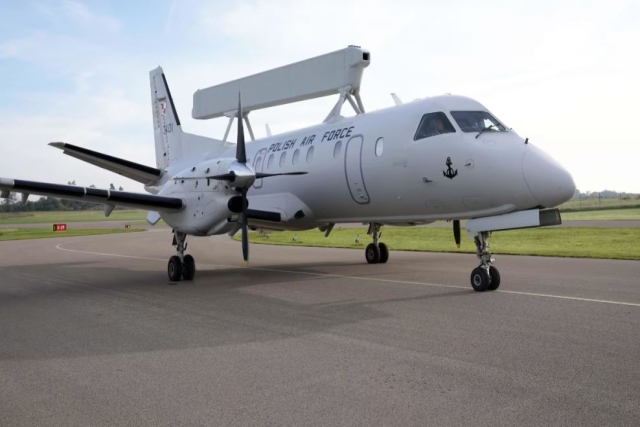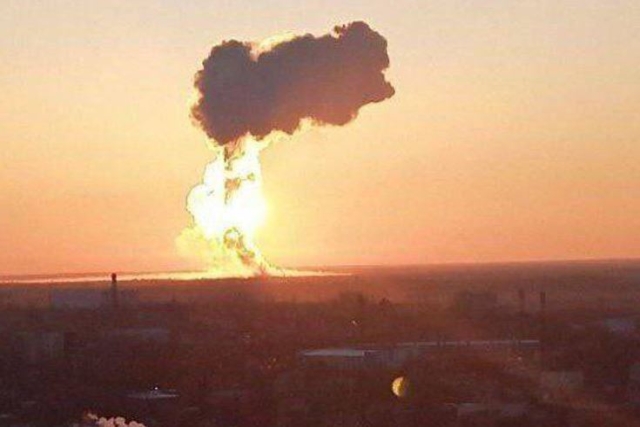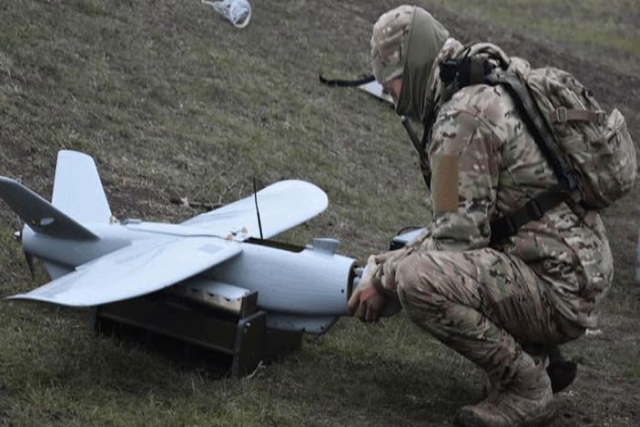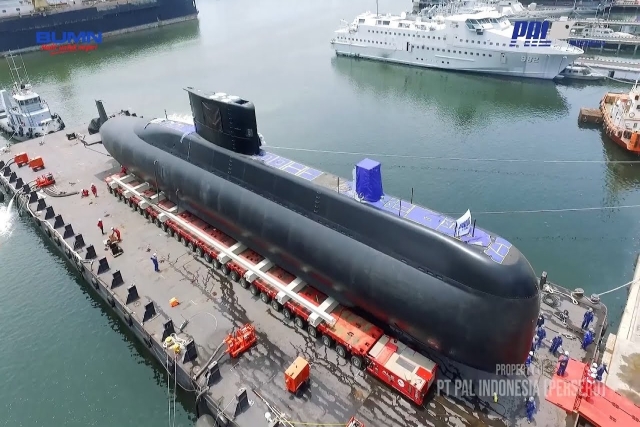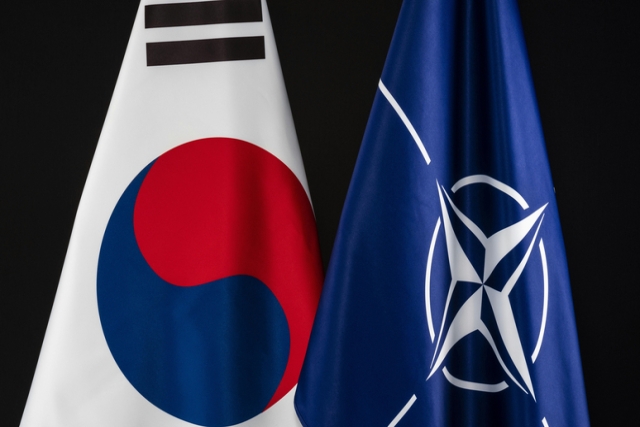Massive Missile, Drone Strikes on Ukrainian Military Facilities, 9 Killed, 70+ Injured
Zelensky cuts short South African Trip after Moscow's air assault
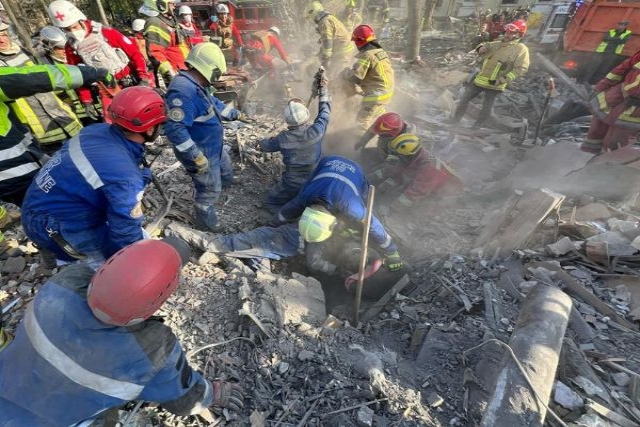
A sweeping aerial assault by Russian forces overnight has killed none people and injured over 70 in Ukraine, most of them in the capital, Kyiv, according to Ukrainian authorities.
The attack, involving nearly 70 missiles and around 150 drones, caused widespread damage to residential areas and infrastructure.
The Ukrainian State Emergency Service reported that at least 42 people have been hospitalized, with rescue operations still underway as emergency crews search for survivors trapped beneath collapsed buildings. Six children and a pregnant woman were among the injured. Two children remain unaccounted for.
The first wave of explosions was heard in Kyiv at approximately 1:00 a.m. local time, followed by further blasts around 4:00 a.m. Fires broke out in residential areas and commercial properties across the city, with debris scattered throughout the capital.
Kyiv City Military Administration chief Tymur Tkachenko described the damage as severe, saying, “This is Russian peace in all its glory.” Kyiv Mayor Vitali Klitschko confirmed that medical personnel were attending to victims across multiple districts.
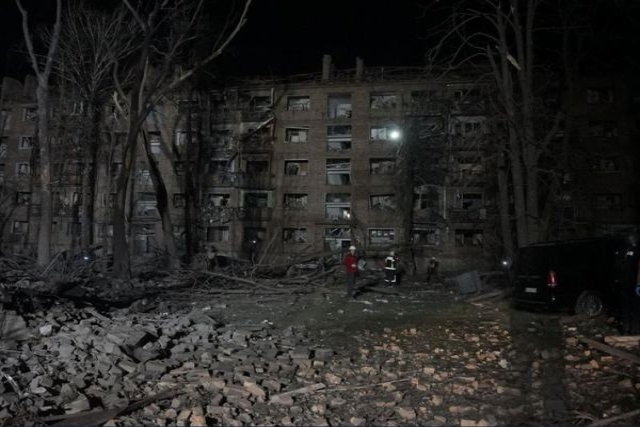
Ukraine’s President Volodymyr Zelenskyy condemned the strike, calling it a breach of a U.S.-backed ceasefire that Ukraine had agreed to 44 days ago. “Russia continues to kill our people and evades accountability,” he said in a video address. “I instructed the Minister of Defense to immediately contact our partners to strengthen air defences.”
According to Ukrainian Interior Minister Ihor Klymenko, the assault extended beyond Kyiv, targeting the oblasts of Zhytomyr, Dnipropetrovsk, Kharkiv, Poltava, Khmelnytskyi, Sumy, and Zaporizhzhia. Kyiv, however, suffered the most intense bombardment.
Poland, a NATO member, scrambled fighter jets overnight in response to the attacks, concerned about missile threats approaching its airspace.
Meanwhile, the Russian Ministry of Defense stated that the operation targeted Ukraine’s military-industrial complex, including facilities tied to aviation, rocketry, armored vehicles, and the production of gunpowder and rocket fuel. It claimed all designated targets were destroyed using precision-guided air, sea, and land-based weapons.
The Russian strike came just hours after the Kremlin reiterated its demands for Ukraine’s neutrality, cessation of Western military support, and full recognition of Russia’s claims over four occupied Ukrainian regions. These demands remain a sticking point in ongoing efforts to broker peace.
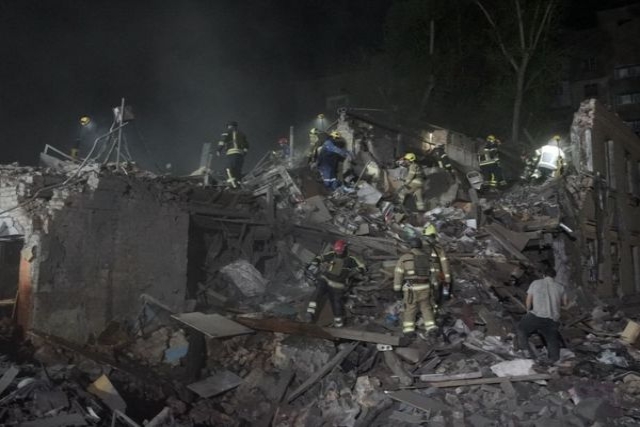
The attack coincided with President Zelenskyy’s visit to South Africa, where he met President Cyril Ramaphosa to garner support from G20 nations and discuss the return of Ukrainian children allegedly abducted by Russia. Zelenskyy has since announced his early return to Ukraine, saying the situation on the ground required his immediate attention.
South Africa, which has kept a neutral stance in the war and maintains ties with Moscow through the BRICS bloc, hosted a Ukrainian ministerial delegation just a day earlier to discuss trade and diplomatic engagement.
Zelenskyy emphasized that global diplomatic action must intensify to stop the strikes and secure humanitarian assistance. “We also count on support in humanitarian matters — in the return of our prisoners and Ukrainian children abducted by Russia,” he said.
Despite efforts by the U.S. to mediate a ceasefire, Moscow has so far not accepted the proposed terms.
